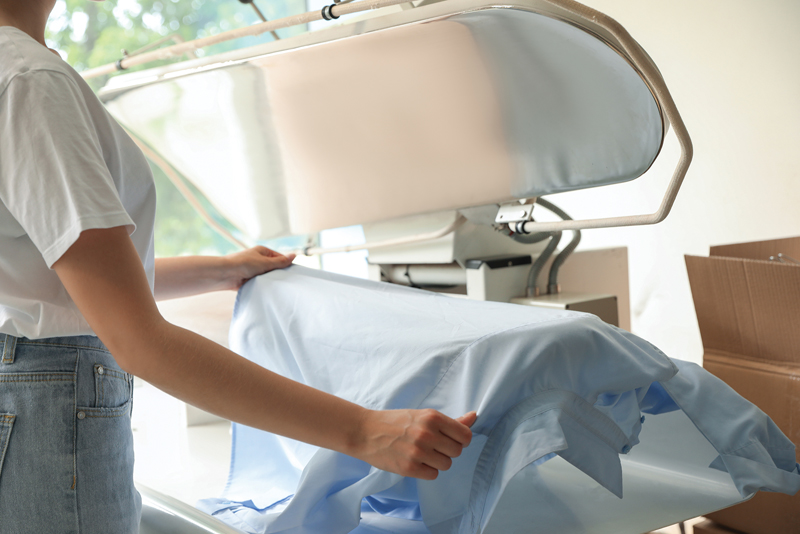I’m researching getting into the uniform business. What types of finishing machines would you recommend?
Clearly, the exact type of equipment you’ll require will depend on the kinds of uniforms you plan to work with. Most likely, you need a hot head press, a legger press, a shirt press and a shirt washing machine, which is different from a standard laundromat washer.
Will you need a steam tunnel? That will depend on the volume you anticipate doing, as well as the types of uniforms you’re going to do.
Your best bet is to call a few equipment companies and have them send out sales representatives who can lay out exactly what you’ll need, based on the types and amount of uniforms you plan to be working with.
I’m trying to set our wash-dry-fold pricing and have noticed a big difference in how large items are priced. In my market, drycleaners and laundromats with wash-dry-fold services charge a per item fee for comforters, bedspreads, blankets and other large items – which is significantly higher than if they charged by the pound.
These larger items are easier to wash and dry, yet cleaners and laundromats charge a lot more to wash them. Are there additional reasons for this higher pricing besides “that’s what the market will bear?”
I can see why you think there might be a discrepancy in the pricing, but let’s look at these items more closely.
First of all, certain items like comforters, bedspreads and blankets, carry a higher value when the customer buys them. After all, many of them are made of expensive nylon and other costly materials. Therefore, there is more of a liability if you were to damage them.
Secondly, many of these items are bulky. For example, one pound of feathers could probably fill a 50-pound-capacity washing machine, even though it’s only one pound of feathers. It’s the same principle with comforters – a comforter might only weigh five pounds, but you’ll probably have to use a 30- to 50-pound machine to wash it.
Next, look at your drying time. The bulkier and fluffier the items, the more time it will take to dry them.
Lastly, the packaging requirements on these larger items are a little different, too. After all, you have to use hangers, plastics and special bags to hold them.
These are a few of the reasons for the higher prices.
I’ve heard that carpet cleaner, diluted with water, can be effective at removing certain clothing stains. Is this true?
Yes, that’ll work. In general, the chemistry of a carpet cleaner is similar to that of laundry detergent. Sometimes, it’s just a little heavier- or lighter-duty, depending on the brand and type. Dishwashing detergent also works. All of these products fall into the detergent/soap classification.
The main point I want to make is that you need to know on which types of stains all of these different cleaners will work. For example, carpet cleaners work great on soil-type stains, but are poor oil eliminators. That’s why most professional carpet cleaners buy different spotting chemicals to use in addition to their carpet shampoos.
I would suggest you try using a carpet cleaner on some of the stains you may come across in your wash-dry-fold business and see how it works for you.












